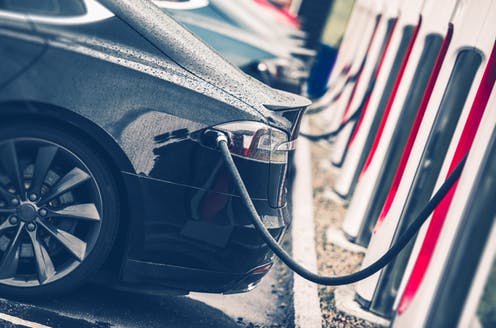Two European startups have achieved key milestones in electric vehicle (EV) battery recycling, a crucial step toward meeting upcoming EU regulations, reducing dependence on China, and cutting carbon emissions.
From August 2030, EV batteries in Europe must contain at least 6% recycled lithium and nickel, and 16% cobalt, increasing five years later. This has sparked a race to innovate battery recycling.
UK-based Altilium, backed by investors like Sociedad Quimica y Minera de Chile and Japan’s Marubeni, announced that batteries using its recycled cathode active materials perform as well as or better than those made with virgin materials from China. A study from Imperial College London confirmed this breakthrough. According to Chief Operating Officer Christian Marston, Altilium's recycled materials reduce CO2 emissions by 70% and lower costs by 20%, making EV battery production more sustainable. The company is working with Tata Motors' JLR to develop new battery cells using materials from old Jaguar i-Pace EVs.
Germany’s tozero, which secured €17 million from investors including Honda, is developing a pilot plant to recycle graphite, a key battery component responsible for 40% of a lithium-ion battery’s carbon footprint. CEO Sarah Fleischer stated that their hydrometallurgy process can achieve net-zero emissions when powered by renewable energy. The company plans to produce 2,000 tonnes of recycled graphite annually by 2027, supplying material for approximately 50,000 EVs.
These developments mark a significant shift in EV battery sustainability, helping European automakers meet regulatory targets while reducing reliance on China’s supply chain.



 Tencent Shares Slide After WeChat Restricts YuanBao AI Promotional Links
Tencent Shares Slide After WeChat Restricts YuanBao AI Promotional Links  Missouri Judge Dismisses Lawsuit Challenging Starbucks’ Diversity and Inclusion Policies
Missouri Judge Dismisses Lawsuit Challenging Starbucks’ Diversity and Inclusion Policies  Rio Tinto Shares Hit Record High After Ending Glencore Merger Talks
Rio Tinto Shares Hit Record High After Ending Glencore Merger Talks  American Airlines CEO to Meet Pilots Union Amid Storm Response and Financial Concerns
American Airlines CEO to Meet Pilots Union Amid Storm Response and Financial Concerns  Elon Musk’s SpaceX Acquires xAI in Historic Deal Uniting Space and Artificial Intelligence
Elon Musk’s SpaceX Acquires xAI in Historic Deal Uniting Space and Artificial Intelligence  TrumpRx Website Launches to Offer Discounted Prescription Drugs for Cash-Paying Americans
TrumpRx Website Launches to Offer Discounted Prescription Drugs for Cash-Paying Americans  CK Hutchison Launches Arbitration After Panama Court Revokes Canal Port Licences
CK Hutchison Launches Arbitration After Panama Court Revokes Canal Port Licences  SpaceX Updates Starlink Privacy Policy to Allow AI Training as xAI Merger Talks and IPO Loom
SpaceX Updates Starlink Privacy Policy to Allow AI Training as xAI Merger Talks and IPO Loom  Instagram Outage Disrupts Thousands of U.S. Users
Instagram Outage Disrupts Thousands of U.S. Users  Hims & Hers Halts Compounded Semaglutide Pill After FDA Warning
Hims & Hers Halts Compounded Semaglutide Pill After FDA Warning  Jensen Huang Urges Taiwan Suppliers to Boost AI Chip Production Amid Surging Demand
Jensen Huang Urges Taiwan Suppliers to Boost AI Chip Production Amid Surging Demand  Prudential Financial Reports Higher Q4 Profit on Strong Underwriting and Investment Gains
Prudential Financial Reports Higher Q4 Profit on Strong Underwriting and Investment Gains  Ford and Geely Explore Strategic Manufacturing Partnership in Europe
Ford and Geely Explore Strategic Manufacturing Partnership in Europe  Sony Q3 Profit Jumps on Gaming and Image Sensors, Full-Year Outlook Raised
Sony Q3 Profit Jumps on Gaming and Image Sensors, Full-Year Outlook Raised  Trump Backs Nexstar–Tegna Merger Amid Shifting U.S. Media Landscape
Trump Backs Nexstar–Tegna Merger Amid Shifting U.S. Media Landscape  SoftBank Shares Slide After Arm Earnings Miss Fuels Tech Stock Sell-Off
SoftBank Shares Slide After Arm Earnings Miss Fuels Tech Stock Sell-Off  Nasdaq Proposes Fast-Track Rule to Accelerate Index Inclusion for Major New Listings
Nasdaq Proposes Fast-Track Rule to Accelerate Index Inclusion for Major New Listings 































